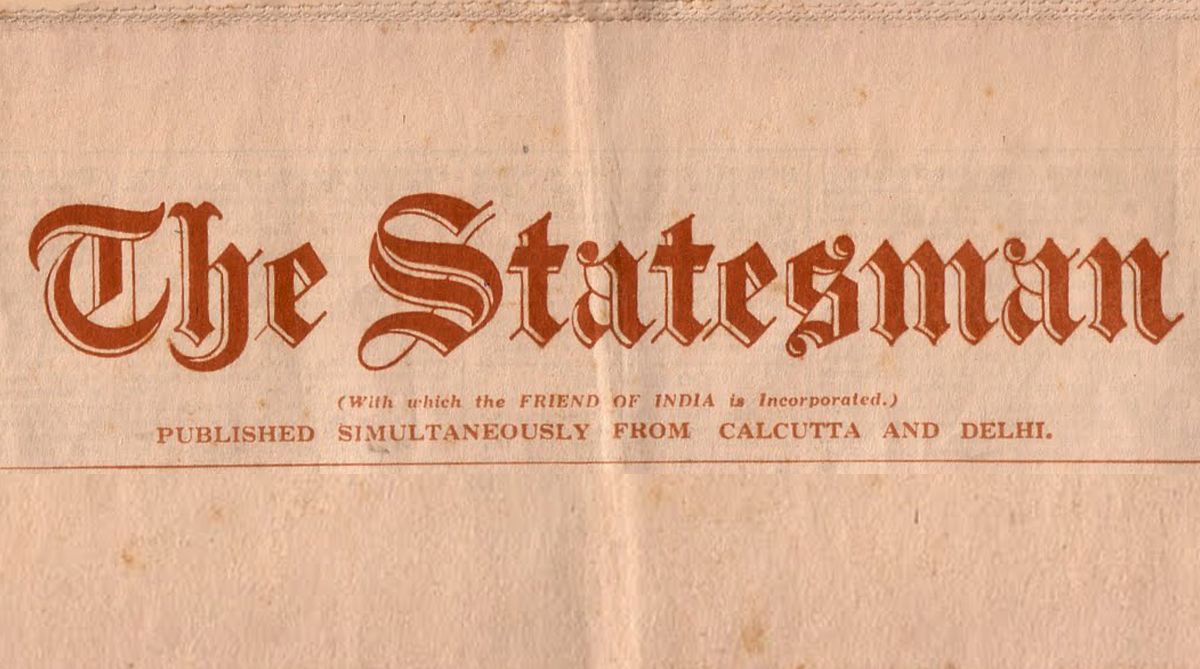A New Day, A New Dawn
There is a surprise for the readers. A special Poila Boishakh gift from none other than West Bengal chief minister Mamata Banerjee. Who has written a piece for this special edition.
On this day a century ago, these were some of the news items The Statesman readers got to read about India and the world.

OCCASIONAL NOTE
American papers of May show that in that month the agitation which had been carried on against the faults of omission and commission of the aircraft branch of the United States Army Department came to a head.
Scathing speeches had been delivered, especially in the Senate, sensational allegations of un-readiness had been tabled, and it was officially admitted that, when the Americans first took their places in the Allied front line, they were so inadequately supported by air patrols that German airmen used to fly low, and open fire upon them in the trenches with revolvers.
Advertisement
The President himself came in for a good deal of criticism, and when he was eventually roused to a sense of the emergency, he did a very fine, as well as a very wise thing. He appointed Judge Charles Hughes, who was, it will be remembered, his Republican opponent at the last Presidential election, to sit, with Attorney-General Gregory, as a committee of investigation into the charges of delay which had been brought against the aircraft section.
Judge Hughes is admirably fitted, by his experience and temperament, to get at the facts in this matter, and by nominating his ex-opponent President Wilson proclaimed his desire that the matter should be examined without fear or favour.
There is reason to believe that the difficulties which had apparently checked American airplane production have been removed, and that the aerial effort of our Allies will in the comparatively near future be on a scale worthy of their splendid contribution to the war on terra firma.
POONA BANK CASE
In the matter of the petition presented by some shareholders of the Poona Bank Ltd., for the winding up of its affairs, Mr. Percival, District Judge, today gave the court’s assent to a compromise of the case under certain arrangements. Mr. Chaswala, Barrister, instructed by Mr. L.R. Gokhale, on behalf of Mr. Panjnikar, one of the shareholders, said they agreed to the bank continuing business on the understanding that the agents, Messrs.
Ramnarayan Amarchand and Chatturbhoj Balmakand, gave an undertaking in writing that they would not use the 16,000 shares they held in the bank in order to get themselves re-elected either as agents or directors; secondly, that Shet Mohanlal, one of the present directors, should retire in favour of any other gentleman agreed upon by the Board; and, thirdly, that if after a year it was found that the bank could not be worked it should go into voluntary liquidation.
Mr. Ghirdharlal, pleader, on behalf of Messrs. Ramnarayan and Balmakand agreed to give the undertaking asked the court to give its opinion
advising the directors of the Bank to drop 300 suits they had set in motion against shareholders as they would only involve the bank in costly litigation.
TELEGRAMS AND LETTERS
A Press communiqué states:- The increasing pressure on the telegraph service, due to the expansion in traffic and the inability of the Department to meet this expansion owing to shortage in material and staff, has led the Government of India to decide that as a further means of relieving pressure on the department the tariff for ordinary inland private telegrams should be increased from eight annas for a telegram of twelve words or less, with half an anna for every additional word, to a uniform rate of one anna a word, with a minimum of twelve annas; and that the rate for express telegrams should be raised from one rupee for twelve words or less, with two annas for every additional word, to a uniform rate of two annas a word with a minimum of one rupee and eight annas.
It has also been decided to increase the Indian letter postage rate to these destinations from one anna per ounce to one and a half annas for the first ounce and one anna for each additional ounce or fraction of an ounce. The alteration in rates will take effect from September 1st, 1918.
FIGHTING THE SUBMARINES
In the House of Commons Sir Eric Geddes stated that the British, Allied and neutral shipping completions in the half-year ending June 30 balanced with the shipping losses of all kinds for the same period.
Enemy submarines now found it too dangerous to work inshore and were again going far out. The number of ships damaged as well as those sunk was declining.
Hitherto Great Britain had preponderatingly borne the brunt of the fight against submarines, but the flow of anti-submarine craft from the United States would ere long become a formidable torrent which would enable Great Britain to divert some of her resources from naval to mercantile construction.
Advertisement